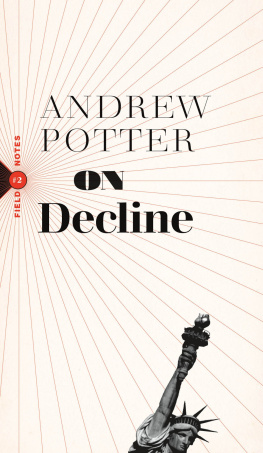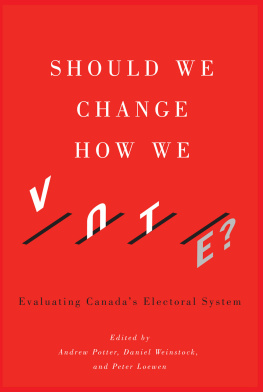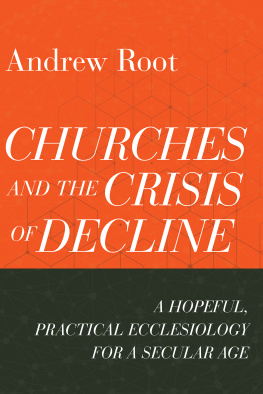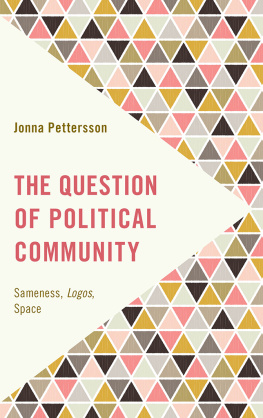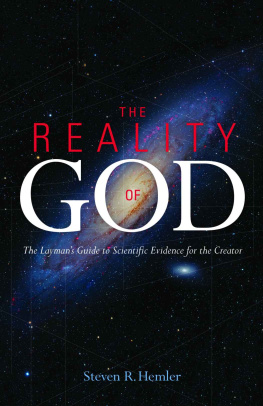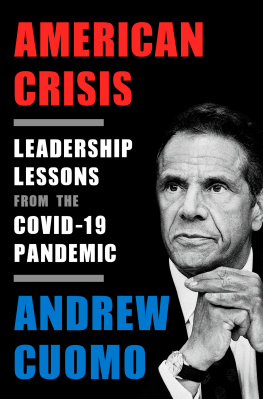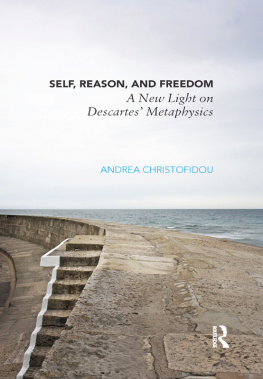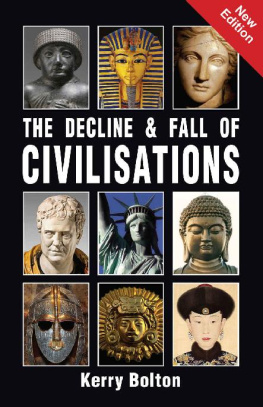Andrew Potter - On Decline
Here you can read online Andrew Potter - On Decline full text of the book (entire story) in english for free. Download pdf and epub, get meaning, cover and reviews about this ebook. year: 2021, publisher: Biblioasis, genre: Politics. Description of the work, (preface) as well as reviews are available. Best literature library LitArk.com created for fans of good reading and offers a wide selection of genres:
Romance novel
Science fiction
Adventure
Detective
Science
History
Home and family
Prose
Art
Politics
Computer
Non-fiction
Religion
Business
Children
Humor
Choose a favorite category and find really read worthwhile books. Enjoy immersion in the world of imagination, feel the emotions of the characters or learn something new for yourself, make an fascinating discovery.
- Book:On Decline
- Author:
- Publisher:Biblioasis
- Genre:
- Year:2021
- Rating:4 / 5
- Favourites:Add to favourites
- Your mark:
- 80
- 1
- 2
- 3
- 4
- 5
On Decline: summary, description and annotation
We offer to read an annotation, description, summary or preface (depends on what the author of the book "On Decline" wrote himself). If you haven't found the necessary information about the book — write in the comments, we will try to find it.
On Decline — read online for free the complete book (whole text) full work
Below is the text of the book, divided by pages. System saving the place of the last page read, allows you to conveniently read the book "On Decline" online for free, without having to search again every time where you left off. Put a bookmark, and you can go to the page where you finished reading at any time.
Font size:
Interval:
Bookmark:

Twenty-volume folios will never make a revolution. Its the little pocket pamphlets that are to be feared.
Voltaire
FIELD  NOTES
NOTES
ANDREW POTTER
Stagnation, Nostalgia, and Why
Every Year is the Worst One Ever
BIBLIOASIS
Windsor, Ontario
Copyright Andrew Potter, 2021
All rights reserved. No part of this publication may be reproduced or transmitted in any form or by any means, electronic or mechanical, including photocopying, recording, or any information storage and retrieval system, without permission in writing from the publisher or a license from The Canadian Copyright Licensing Agency (Access Copyright). For an Access Copyright license visit www.accesscopyright.ca or call toll free to 1-800-893-5777.
FIRST EDITION
Library and Archives Canada Cataloguing in Publication
Title: On decline / Andrew Potter.
Names: Potter, Andrew, author.
Description: Series statement: Field notes ; #3 | Includes bibliographical references.
Identifiers: Canadiana (print) 20210207930 | Canadiana (ebook) 20210208260 | ISBN 9781771963947 (softcover) | ISBN 9781771963954 (ebook)
Subjects: LCSH: Civilization, Western21st century. | LCSH: Regression (Civilization) | LCSH: History, Modern21st century.
Classification: LCC CB245 .P68 2021 | DDC 909/.09821083dc23
Edited by Daniel Wells
Copyedited by Emily Donaldson
Typeset by Vanessa Stauffer
Series designed by Ingrid Paulson

Published with the generous assistance of the Canada Council for the Arts, which last year invested $153 million to bring the arts to Canadians throughout the country, and the financial support of the Government of Canada. Biblioasis also acknowledges the support of the Ontario Arts Council (OAC), an agency of the Government of Ontario, which last year funded 1,709 individual artists and 1,078 organizations in 204 communities across Ontario, for a total of $52.1 million, and the contribution of the Government of Ontario through the Ontario Book Publishing Tax Credit and Ontario Creates.
PRINTED AND BOUND IN CANADA
For Liz, who gives me hope
Im not saying that David Bowie was holding the fabric of the universe together, but [gestures broadly at everything]
Katie Loewy via Twitter
(@sweetestcyanide)
Youre too young to remember it, her mother said, but we were expecting nuclear war all the time, really, up into my early thirties. Later, all of that felt unreal. But the feeling that things became basically okay turns out to have actually been what was unreal.
William Gibson, Agency
ON JANUARY 8, 2016, David Bowie gave himself a birthday gift in the form of Blackstar, a quirky new album that nodded toward his Krautrock period in the mid-seventies. The title track was a mix of Gregorian chants, soulful jazz, and electronica, and clocked in at a solid ten minutes. It was also a decidedly moody album, full of cryptic songs about mysticism and mortality. Critics loved it. It turned out that Bowies birthday present was also his parting gift to the world. Two days later, he died of liver cancer. The year was off to a lousy start, and it was about to get a whole lot worse.
As a bitterly clever viral tweet suggested, it almost seemed like David Bowie had been an alien force holding the fabric of the universe together. With his death, things started to unravel on virtually every level. In Syria, the tide turned in the six-year-long civil war as Russian-backed government forces, making free use of horrific barrel bombs, captured the rebel stronghold of Aleppo. Thanks to global warming, 2016 was the hottest year on record. Hurricanes ravaged the Gulf, while the Zika virus emerged as a global threat, especially to pregnant women. There were terrorist attacks in Brussels, Nice, and at a nightclub in Orlando. In June, Britain shocked the world by voting to leave the EU, something that would have stood as the most notable political story of the year if it hadnt been eclipsed in November by the election of Donald Trump as the president of the United States.
Amidst it all there was a distressing number of high-profile celebrity deaths, as Bowie was followed into the unknown by Alan Rickman, Muhammad Ali, Carrie Fisher, Leonard Cohen, and, on Christmas Day, George Michael. Most shocking was the death, in late April, of Prince, probably the only person capable of challenging Bowie for the title of most important musician of the last half-century.
And so the pattern seemed to be set: A stable international order collapsing amid renewed Great Power machinations, populist retrenchment and decay amongst the established democracies fuelled by fake news and Russian manipulation, terror attacks abroad and mass shootings at home, and the constant menace of looming environmental catastrophe. Behind it all, marking time like a drummer in a death march, was the steady beat of dead celebrities reminding us that the old, familiar world was being replaced by something new and uncertain.
Newspapers December wrap-ups widely agreed that 2016 was the worst year ever. And yet every year since has also felt like the worst year ever, to the point where claiming the current year as worse than the previous one has become something of a social-media clich.
Its hard to know how much of this is just a consequence of omnipresent social media triggering the well-known availability heuristic, the cognitive shortcut that causes us to rely on the examples that come most quickly to mind when we make judgments or evaluations. Social media is full of doom and gloom (theres a reason why doomscrolling was the hit neologism of 2020), so of course we think the world is getting worse all the time. Want to feel better about things? Try turning off your phone for a bit, get some fresh air and exercise, play with your kids.
Also, even if things are going really badly at the moment, it doesnt necessarily reflect on the bigger picture. Step back for a longer view and youll notice that the world breakslike, really fracturesevery ten years or so, almost without exception, and has done so for a while now. In Europe and North America, the years 19141918, 19291933, and 19391945 were all followed by a two-decade period of growth and relative stability. But then if we look look at the years 1968, 1979, 1989, 2001, 20082009, a decade-long cycle of disruption and instability starts to look like the norm, not the exception. What are we to make of this pattern? The pessimist would say: Look at how fragile our systems are. To which the optimist responds, No, look at how robust and resilient they are. Things break but then they recover, so while its probably never a bad idea to turn off your phone, theres really not much to worry about.
Whatever else you might want to say about how 2020 played out, one thing you cannot seriously claim to be is surprised. An elementary exercise in inductive reasoning (each year is worse than the last), combined with judicious appreciation of the ten-year rule, would lead one straight to the conclusion that, no matter how bad things were by the end of 2019, they were almost certainly going to get worse.
And so they did, and they didnt waste any time getting there. On January 3, an American drone strike near Baghdad killed Qasem Suleimani, the head of the Quds Force, Irans special operations and intelligence unit. Five days later, with tensions running very high, an Iranian missile defense battery shot down a Ukrainian Airlines flight out of Tehran, killing 176 civilians, more than half of whom were Canadians or had ties to Canada. For a while, war looked like a serious possibility.
Font size:
Interval:
Bookmark:
Similar books «On Decline»
Look at similar books to On Decline. We have selected literature similar in name and meaning in the hope of providing readers with more options to find new, interesting, not yet read works.
Discussion, reviews of the book On Decline and just readers' own opinions. Leave your comments, write what you think about the work, its meaning or the main characters. Specify what exactly you liked and what you didn't like, and why you think so.

